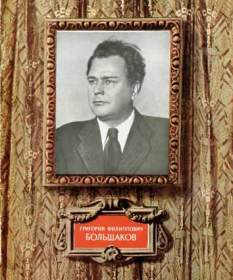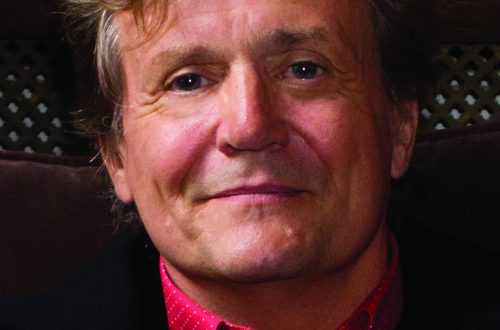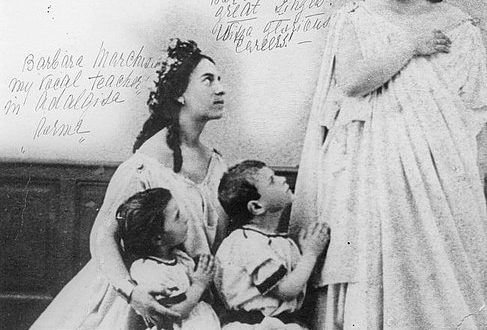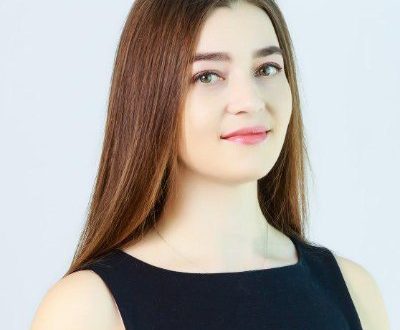
Grigory Filippovich Bolshakov |
Grigory Bolshakov
Born in 1904 in St. Petersburg. The son of a worker, he inherited his father’s love of singing. The Bolshakovs had a gramophone with records in their house. Most of all, the young boy liked the Demon’s aria and Escamillo’s couplets, which he dreamed of someday singing on the professional stage. His voice often sounded in amateur concerts at work parties – a beautiful, sonorous tenor.
Entering the Music School on the Vyborg side, Grigory Filippovich falls into the class of teacher A. Grokholsky, who advised him to work with the Italian Ricardo Fedorovich Nuvelnordi. The future singer studied with him for a year and a half, acquiring the first skills in staging and mastering the voice. Then he moved to the 3rd Leningrad Music College and was accepted into the class of Professor I. Suprunenko, whom he later remembered very warmly. It was not easy for the young singer to study music, he had to earn a living, and Grigory Filippovich at that time was working on the railway as a statistician. At the end of three courses at the technical school, Bolshakov tried out for the choir of the Maly Opera Theater (Mikhailovsky). After working for more than a year, he enters the theater of the comic opera. The singer’s debut is Fenton’s part in Nicolai’s The Merry Wives of Windsor. The opera was conducted by the famous Ariy Moiseevich Pazovsky, whose instructions were deeply perceived by the young singer. Grigory Filippovich told about the extraordinary excitement he experienced before the first appearance on the stage. He stood backstage, feeling his feet root to the floor. The assistant director had to literally push him onto the stage. The singer felt a terrible stiffness of movements, but it was enough for him to see the crowded auditorium, as he mastered himself. The first performance was a great success and determined the fate of the singer. In the comic opera, he worked until 1930 and enters the competition at the Mariinsky Theater. Here in his repertoire are Lensky, Andrei (“Mazepa”), Sinodal, Gvidon, Andrei Khovansky, Jose, Arnold (“William Tell”), Prince (“Love for Three Oranges” by Prokofiev). In 1936, Grigory Filippovich was invited to the Saratov Opera House. The singer’s repertoire is replenished with the parts of Radamès, Herman, old and young Faust, Duke (“Rigoletto”), Almaviva. The singer’s statement about The Barber of Seville and the role of Almaviva has been preserved: “This role gave me a lot. I think that The Barber of Seville is a great school for every opera singer.”
In 1938, G.F. Bolshakov made his debut at the Bolshoi Theater and since then, until the end of his singing career, he has been continuously working on its famous stage. remembering the precepts of F. I. Chaliapin and K. S. Stanislavsky, Grigory Filippovich works hard and hard to overcome opera conventions, carefully thinks through the smallest details of stage behavior and creates realistic convincing images of his heroes as a result. Grigory Filippovich is a typical representative of the Russian vocal school. Therefore, he was especially successful in images in Russian classical opera. For a long time, the audience remembered him Sobinin (“Ivan Susanin”) and Andrei (“Mazepa”). Critics of those years praised his blacksmith Vakula in Tchaikovsky’s Cherevichki. In old reviews they wrote this: “For a long time the audience remembered this vivid image of a good-natured, strong lad. The artist’s wonderful aria “Does the girl hear your heart” sounds wonderful. The singer puts a lot of sincere feeling into Vakula’s arioso “Oh, what a mother to me…” On my own behalf, I note that G.F. Grigory Filippovich also sang the part of Herman very well. She, perhaps, most corresponded to the nature of the vocal and stage talent of the singer. But this part was sung simultaneously with Bolshakov by such outstanding singers as N. S. Khanaev, B. M. Evlakhov, N. N. Ozerov, and later G. M. Nelepp! Each of these singers created their own Herman, each of them was interesting in his own way. As one of the performers of the part of Lisa wrote to me in one of her personal letters, Z. a. Russia – Nina Ivanovna Pokrovskaya: “Each of them was good … True, Grigory Filippovich was sometimes overwhelmed on stage by emotions, but his German was always convincing and very fiery …”
Among the undoubted successes of the singer, critics and the public attributed his performance of the role of Vaudemont in Iolanthe. Convincingly and in relief, G.F. Bolshakov draws the character of this brave young man, his selflessness and nobility, the depth of the all-conquering feeling for Iolanthe. With what high drama the artist fills the scene where Vaudemont, in despair, discovers that Iolanthe is blind, how much tenderness and pity sounds in his voice! And in the operas of the Western European repertoire he is accompanied by success. The outstanding achievement of the singer was rightly considered his performance of the part of Jose in Carmen. G. F. Bolshakov was also very expressive in the role of Arnold (William Tell). It manifested the artist’s characteristic desire to dramatize lyrical images, in particular in the scene where Arnold learns about the execution of his father. The singer with great force conveyed the courageous character traits of the hero. As many who heard and saw Grigory Filippovich noted, Bolshakov’s lyricism was devoid of sentimentality. When he sang the part of Alfred in La Traviata, even the most exciting scenes were saturated with him not with sugary melodrama, but with the vital truth of feelings. Grigory Filippovich successfully sang a varied repertoire at the Bolshoi Theater for many years, and his name rightfully occupies a worthy place in the constellation of the great operatic voices of our Bolshoi.
Discography of G. F. Bolshakov:
- Part of Vaudemont in the first complete recording of “Iolanta”, recorded in 1940, choir and orchestra of the Bolshoi Theater, conductor S. A. Samosud, in an ensemble with G. Zhukovskaya, P. Nortsov, B. Bugaisky, V. Levina and others. (The last time this recording was released on gramophone records by the Melodiya company was in the early 80s of the XNUMXth century).
- Andrei’s part in “Mazepa” by P. I. Tchaikovsky, recorded in 1948, in an ensemble with Al. Ivanov, N. Pokrovskaya, V. Davydova, I. Petrov and others. (Currently released overseas on CD).
- Part of Andrey Khovansky in the second complete recording of the opera Khovanshchina, recorded in 1951, choir and orchestra of the Bolshoi Theater, conductor V. V. Nebolsin, in an ensemble with M. Reizen, M. Maksakova, N. Khanaev, A. Krivchenya and others. (Currently the recording has been released on CD abroad).
- “Grigory Bolshakov Sings” – a gramophone record by the Melodiya company. The scene of Marfa and Andrei Khovansky (a fragment from the complete recording of “Khovanshchina”), Herman’s arioso and aria (“The Queen of Spades”), Vakula’s arioso and song (“Cherevichki”), Levko’s song, Levko’s recitative and song (“May Night”), scene of Melnik, Prince and Nitasha (Mermaid with A. Pirogov and N. Chubenko).
- Video: part of Vakula in the film-opera Cherevichki, filmed in the late 40s.





